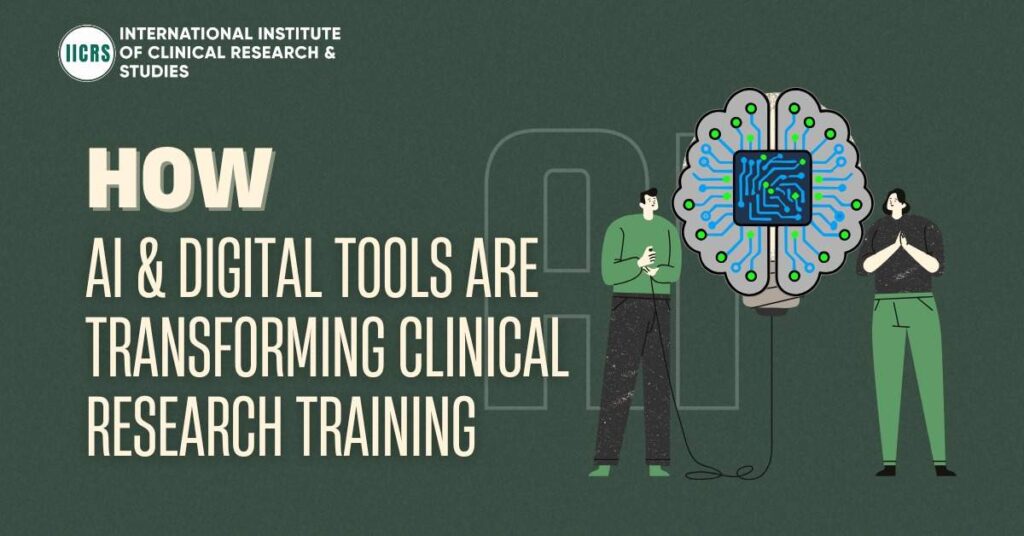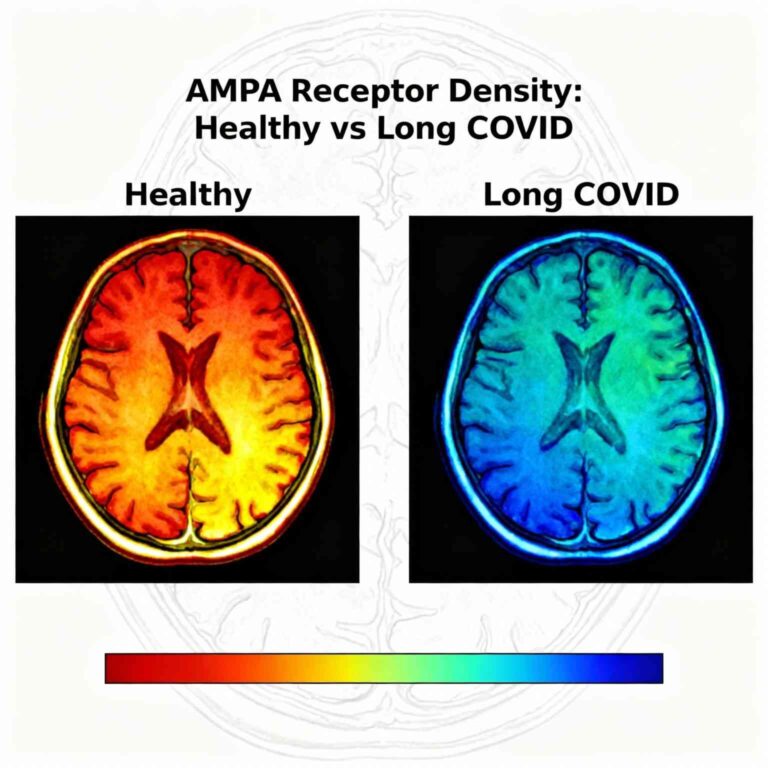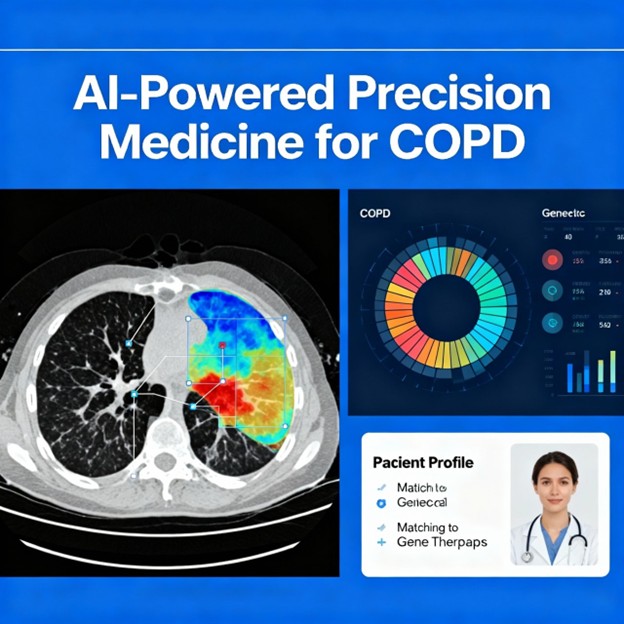Online Clinical Research Courses 2025: How AI & Digital Tools Are Transforming Research Training

Introduction — The New Era of Clinical Research Education
The landscape of clinical research education has undergone a profound transformation. Gone are the days when aspiring professionals needed to sit in crowded classrooms to gain essential knowledge. Today, clinical research courses are delivered through sophisticated online platforms that combine flexibility, expertise, and cutting-edge technology.
The shift from traditional classroom learning to dynamic online modes reflects a broader change in how the healthcare and pharmaceutical industries operate. Clinical research professionals now access world-class training from anywhere, at any time, without geographical constraints. More significantly, artificial intelligence, automation, and interactive simulation tools are not merely enhancements—they are fundamentally redefining how research competencies are developed and mastered.
Industry Growth Snapshot: In an era where personalized medicine, decentralized trials, and AI-driven analytics dominate pharmaceutical development, clinical research remains crucial to the evolving pharma-biotech ecosystem. The global clinical trials market has surged to USD 84.54 billion in 2024 and is projected to reach USD 158.41 billion by 2033, expanding at a compound annual growth rate of 7.5%. This explosive growth creates unprecedented opportunities for trained professionals who understand both the science and the digital tools powering modern trials.
Why Clinical Research Courses Are More Important Than Ever
The demand for skilled clinical research professionals has never been higher. The global clinical research industry is expected to reach USD 78 billion by 2030, with new treatments and biological innovations emerging at accelerating rates. Between 2016 and 2019, clinical trial activity grew approximately 12% annually, while the workforce grew only 9%—creating a talent gap that employers are eager to fill.
This shortage is not coincidental: it reflects the complexity and specialization required in contemporary research environments. The U.S. clinical research workforce faces unprecedented challenges in keeping pace with trial volume. Some organizations experience annual turnover rates exceeding 25% in roles like Clinical Research Associate, resulting in continuous hiring demand across contract research organizations and pharmaceutical sponsors globally.
Regulatory Evolution in 2025: Regulatory demands have intensified significantly. The adoption of ICH-GCP E6(R3) guidelines, finalized in 2025, represents a major milestone in clinical research governance. The European Union implemented E6(R3) as of July 23, 2025, with the FDA formally incorporating these updated standards into regulatory guidance by September 2025. These guidelines emphasize quality by design, risk-based monitoring, and flexibility for modern trial designs—concepts that every clinical research professional must understand.
For career advancement and employability, certified online clinical research training courses have become essential credentials. Employers increasingly prioritize candidates who demonstrate not only theoretical knowledge but also practical competency with industry-standard tools, regulatory frameworks, and data management systems. A recognized certification signals that professionals are ready for the demands of real-world trial execution from day one.
Role of AI in Modern Clinical Research Training
Artificial intelligence has transcended its role as a mere technological buzzword in clinical research—it is now reshaping how professionals are trained. The AI-based clinical trials market itself grew from USD 7.73 billion in 2024 to USD 9.17 billion in 2025, with projections reaching USD 21.79 billion by 2030, reflecting a compound annual growth rate of 19%.
AI-powered training simulations create immersive, adaptive learning environments that respond to each student’s performance in real time. Unlike static online modules, AI-driven learning management systems analyze student interactions, identify knowledge gaps, and personalize the curriculum accordingly. This means two students working through the same course may encounter different scenarios, difficulty levels, and supplementary materials based on their individual progress.
These systems prepare students for the actual use of AI in clinical trials. In practice, AI tools optimize trial protocols through scenario simulation and predictive analytics. AI-based systems can simulate various trial scenarios to predict potential outcomes, allowing researchers to refine study designs in advance and minimize risks. This capability is now being integrated into training platforms, allowing students to engage with these tools before entering professional settings.
Personalized learning pathways through AI-based learning management systems represent a fundamental shift in educational methodology. Rather than a one-size-fits-all approach, adaptive platforms track each learner’s pace, comprehension, and learning style. Trainers receive real-time insights into student performance, enabling targeted interventions. Mentors and instructors can quickly identify struggling students and provide additional support, while high-performing students progress at an accelerated pace without unnecessary repetition.
Many leading organizations now integrate AI-driven learning into their curriculum. For instance, programs incorporating machine learning help students develop predictive analytics skills essential for modern trial feasibility assessments and patient recruitment optimization. Platforms now feature AI-assisted query resolution, allowing students to practice identifying data discrepancies and generating solutions—tasks they will encounter daily in professional roles.
Digital Tools Enhancing Online Clinical Research Courses
The clinical research toolkit has evolved dramatically. Modern online clinical research courses introduce students to enterprise-level digital platforms that they will use throughout their careers.
Medidata Clinical Data Studio: serves as a comprehensive example of AI integration in clinical trials. The Medidata Clinical Data Studio, powered by embedded AI, accelerates data review and reconciliation activities up to 80% faster than traditional methods. By connecting diverse data sources, students learn how disparate trial information—from electronic case report forms to wearable device data—can be unified into actionable insights. Medidata’s Performance Analytics platform leverages data from over 36,000 trials and 11 million patients across 140+ countries, providing students with real-world benchmarking insights that inform protocol design decisions.
REDCap: remains foundational for electronic data capture and management. Online training courses teach students to design case report forms, configure data validation rules, and manage survey instruments through REDCap’s user-friendly interface. Many courses incorporate hands-on REDCap projects, allowing students to design actual CRFs and execute data collection workflows.
Oracle Clinical and SAS: represent advanced statistical and data management platforms. Training programs increasingly include modules on SDTM (Study Data Tabulation Model) and ADaM (Analysis Data Model) standards—frameworks that ensure clinical data are structured consistently across trials. By learning to work with these standards early in their careers, professionals can seamlessly transition into sponsor and CRO environments.
Veeva Vault: represents the enterprise content management approach to clinical data. Online courses covering Veeva teach students to configure studies, manage document workflows, and ensure compliance with FDA 21 CFR Part 11 requirements. Real-world case studies show how Veeva integrates with eCRF systems and centralizes trial operations.
These digital tools prepare students for CRO and pharmaceutical job roles by bridging the gap between theoretical knowledge and practical application. Rather than entering a CRO with only textbook understanding, graduates have hands-on experience troubleshooting common challenges, resolving data queries, and optimizing workflows—making them productive from their first day.
Key Skills Students Gain from Online Clinical Research Courses
A comprehensive online clinical research curriculum imparts several critical competencies that employers actively seek.
Clinical Trial Design and Monitoring: form the foundation. Students learn how to evaluate protocol feasibility, understand inclusion and exclusion criteria, and develop risk-based monitoring strategies aligned with ICH-GCP E6(R3). They explore Phase I, II, III, and IV trial designs, understanding the unique challenges and regulatory requirements of each phase. Practical exercises involve designing mock study protocols and identifying potential issues before they occur in real trials.
Data Integrity and GCP Compliance: are non-negotiable. Students master the ALCOA+ principles (Attributable, Legible, Contemporaneous, Original, Accurate, complete, Consistent, Enduring, Available, Responsibility), ensuring they understand how to generate, document, and maintain data that regulators will scrutinize. Training covers audit trail requirements, electronic signature implementation, and the documentation standards demanded by FDA and EMA inspections.
Biostatistics and AI-Based Data Interpretation: equip students to work alongside biostatisticians and understand data analysis workflows. Rather than performing complex statistical analyses, students learn how to prepare clean datasets, understand analysis plans, and interpret results. Increasingly, this includes exposure to machine learning applications—understanding how AI models predict patient responses, identify trial risks, and optimize enrollment.
Clinical Data Management and Pharmacovigilance: skills distinguish professionals in the talent market. Students learn data validation techniques, adverse event coding using MedDRA and WHODrug, and the end-to-end data lifecycle from capture through analysis. Pharmacovigilance training covers safety signal detection, causality assessment, and regulatory reporting requirements—competencies critical as pharmaceutical companies navigate complex global safety obligations.
Advantages of Online Clinical Research Training Courses in 2025
Modern online clinical research training courses deliver multiple compelling advantages that traditional classroom settings simply cannot match.
Flexibility for Students and Professionals: represents perhaps the most immediate benefit. Many aspiring clinical researchers are already employed, pursuing advanced degrees, or managing family obligations. Online courses offer asynchronous learning options, allowing students to engage with course material on their schedule. Some programs combine recorded lectures with live interactive sessions, enabling flexibility without sacrificing instructor interaction. Students can replay complex concepts, pause to take detailed notes, and progress at a pace that accommodates their individual circumstances.
Access to Global Mentors and Virtual Live Classes: transcends geographical boundaries. An aspiring clinical research professional in Bangalore can receive direct instruction from leading industry experts based in Boston, London, or Basel. Virtual classrooms hosted via Zoom, WebEx, or specialized educational platforms enable real-time interaction, Q&A sessions, and peer networking across continents. International cohorts expose students to diverse regulatory frameworks—how trials are conducted in India, the United States, Europe, and beyond—enriching their professional perspective.
Affordability and Recognized Certifications: make professional development accessible. Online programs typically cost significantly less than residential programs or traditional Master’s degrees, while delivering equivalent or superior outcomes. Recognized certifications from reputable institutions carry weight with employers, indicating that graduates have met established competency standards. Many employers actively seek candidates with specific certifications, sometimes even covering tuition for promising team members.
Real-Time Updates on Regulatory and AI Trends: keep curricula current. Unlike textbooks or traditional courses that become outdated quickly, online platforms can be updated dynamically. When ICH released E6(R3) guidelines in 2025, leading online programs incorporated updated content within weeks. Similarly, as new AI applications emerge in patient recruitment or data analysis, forward-thinking platforms integrate case studies and training modules, ensuring graduates learn cutting-edge methodologies.
How IICRS is Leading the Future of Clinical Research Education
IICRS (Independent Institute of Clinical Research Studies) exemplifies how educational institutions are leveraging technology and expertise to transform clinical research training.
IICRS’s online programs combine comprehensive curriculum depth with practical, hands-on project work. Their offerings span from foundational clinical research concepts through advanced specializations in clinical data management, pharmacovigilance, and regulatory affairs. The institute has designed programs with built-in flexibility—students can enroll in 1-month, 3-month, or 6-month formats, with optional project work extending learning to 12 months for those seeking maximum practical exposure.
AI-Driven Learning Ecosystem and Interactive Curriculum: distinguish IICRS from traditional providers. The platform incorporates adaptive learning pathways that adjust to student performance, ensuring each learner receives appropriately challenging material. Interactive case studies and scenario-based learning simulate real clinical trial challenges. Students work through mock adverse event investigations, resolve data discrepancies, and design risk-based monitoring plans—all guided by expert instructors.
Internship and Placement Support System: bridges the gap between training and employment. Rather than leaving graduates to navigate job markets independently, IICRS facilitates internships with CROs, pharmaceutical companies, and clinical research organizations. This direct exposure to professional environments transforms the learning experience from theoretical to practical. Placement support helps graduates identify opportunities aligned with their interests and strengths.
Alumni Success Stories and Global Student Network: demonstrate the tangible value of the program. Graduates are now working with major CROs like Syneos Health, IQVIA, and Parexel, as well as pharmaceutical leaders including Pfizer, GSK, and Sun Pharma. Alumni networks provide ongoing peer support, continuing education opportunities, and career advancement pathways. Many graduates progress from entry-level Clinical Research Coordinator roles to become Clinical Research Associates, Project Managers, and eventually Directors of Clinical Operations.
The Future of Clinical Research Learning — 2025 & Beyond
The trajectory of clinical research education points toward even more sophisticated integration of emerging technologies.
AI-Driven Adaptive Courses: will become the standard, not the exception. Machine learning algorithms will continue to personalize learning experiences based on individual performance, learning preferences, and career aspirations. Students preparing for CRA roles will engage with different scenarios than those targeting data management or regulatory affairs. Courses will dynamically adjust difficulty, pacing, and supplementary content based on real-time learning data.
Virtual Trial Simulations: will approximate real-world trial complexity with unprecedented fidelity. Students will participate in fully simulated clinical trials—recruiting simulated patients, managing protocol deviations, resolving data queries, and responding to simulated adverse events—all within a controlled learning environment. These immersive experiences build muscle memory and decision-making competency before professionals encounter actual trials.
Blockchain Integration: will enhance data security and transparency in training and trial environments. As blockchain becomes more prevalent in clinical trials for securing consent records, ensuring data integrity, and enabling real-time auditing, educational platforms will teach students to understand and work with blockchain-enabled systems. Training exercises will involve working with distributed ledgers, smart contracts, and decentralized data verification.
Decentralized Trial Concepts: embedded throughout curricula will reflect industry reality. With approximately 37% of trial delays attributable to patient recruitment challenges, training will emphasize decentralized and remote monitoring strategies. Students will learn to design and manage trials where patients participate from home, data flows from wearable devices, and monitoring occurs centrally through data analytics—the operational reality of 2025 and beyond.
The pharmaceutical industry predicts that clinical trials conducted fully remotely or in hybrid decentralized models will dominate by 2030. Forward-thinking training programs are preparing professionals now for this operational shift, ensuring graduates can immediately contribute to next-generation trial designs.
Conclusion — Upgrade Your Career with IICRS Online Clinical Research Courses
The convergence of exploding industry demand, technological innovation, and regulatory evolution has created an extraordinary moment for clinical research professionals. The global clinical trial market is expanding at 7.5% annually, AI is accelerating every phase of research, and updated regulatory frameworks demand sophisticated compliance expertise. These dynamics make now the ideal time to invest in professional development.
Online clinical research courses from organizations like IICRS provide the most efficient path to career advancement. Students gain recognized certifications, develop practical expertise with industry-standard tools, and build networks with peers and mentors from around the globe. Rather than learning in isolation, online cohorts create vibrant learning communities where students support one another, exchange experiences, and build professional relationships that extend throughout their careers.
The future belongs to professionals who combine scientific knowledge with technological proficiency. Those trained in adaptive learning platforms, AI applications, and decentralized trial methodologies will command premium opportunities. They will be the architects of next-generation clinical research, designing trials that are faster, more inclusive, patient-centered, and scientifically rigorous.
Ready to Transform Your Career?
Join IICRS today to experience AI-driven clinical research training designed for 2025 and beyond. Contact us to explore which program aligns with your career goals and get started immediately. Your future in clinical research—and the patients who will benefit from your work—cannot wait.




